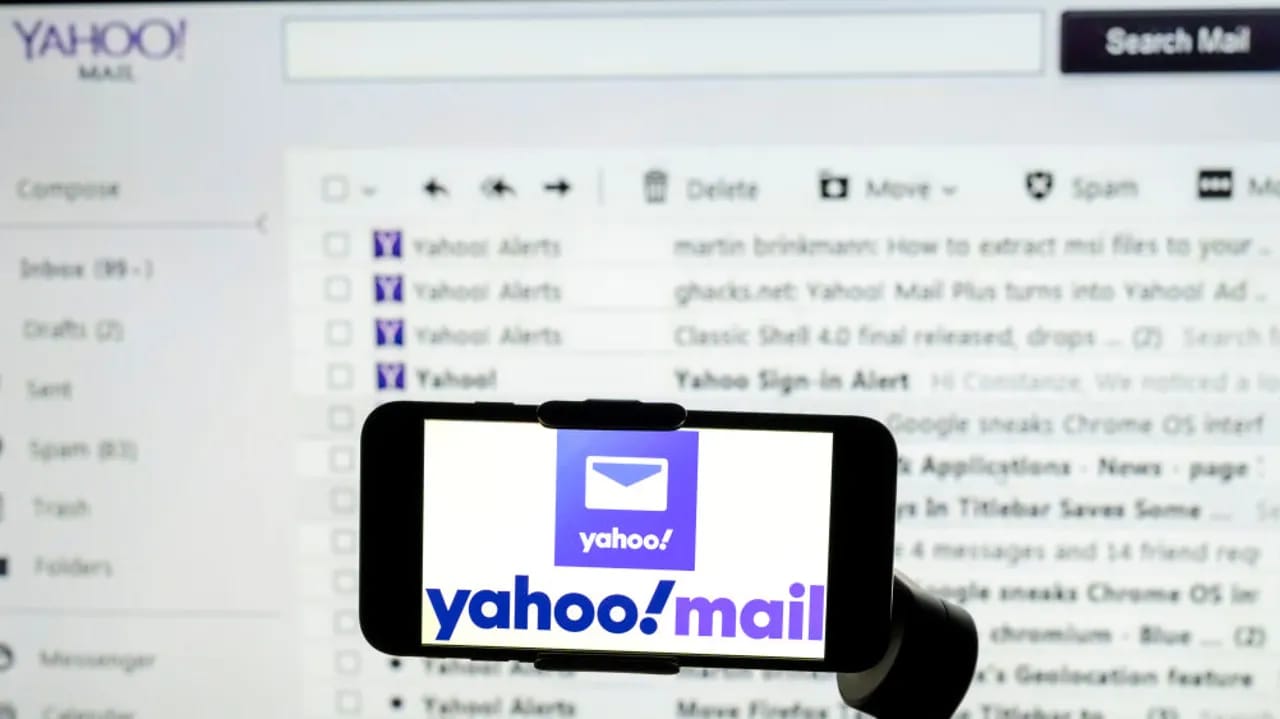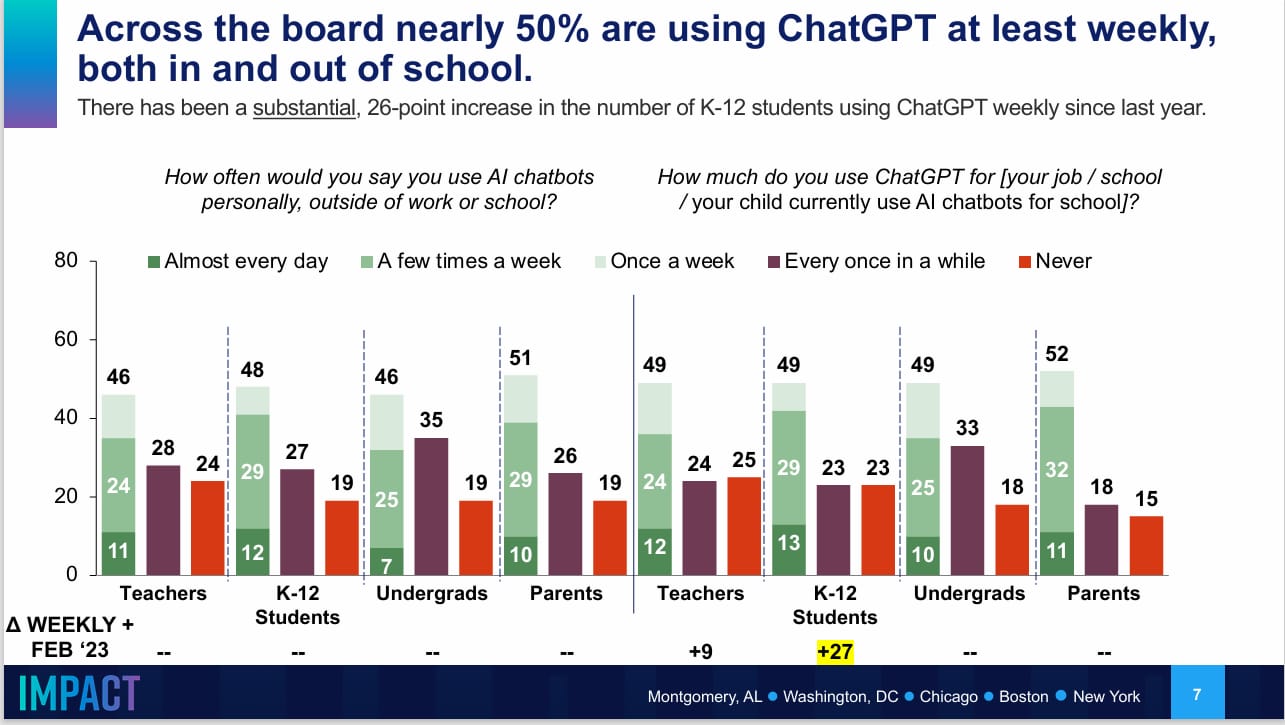- AI Weekly Wrap-Up
- Posts
- New Post 6-12-2024
New Post 6-12-2024
Top Story
Apple showcases “AI for the rest of us.”
One of the big questions about AI has been, what is it actually good for (other than cheating on schoolwork helping with studies.) Apple demoed its answer at its annual World Wide Developer Conference on Monday, and… (IMO) nailed it.
Apple introduced “Apple Intelligence” (AI, get it?), which is an integrated 3-layer system that brings AI to your smartphone in a seamless, useful way. The result is the Siri that we’ve wanted ever since 2011. First, it understands conversational vernacular far better than old Siri did, making interactions more fluid and natural. Second, it knows a lot about you, from your emails, texts, contacts, etc. And finally, it knows a lot about your device and apps, and it is “screen aware,” so it can actually use your apps at your direction to perform tasks for you.
The killer demo of all this was an Apple employee who was planning to pick up her mother from the airport, who asked Siri “When does my mom’s plane land?” Siri knew who her mom was from emails and contacts, knew the mom’s flight number from information the mom sent her daughter via email, and then used a flight tracker app to check the most updated expected time of arrival.
Utopia, right? Or maybe a hellscape where we have no privacy, ever, ever again?
Apple has clearly thought very, very hard about this question, and has perhaps the best privacy architecture among all of the major tech companies (see the story below on the growing privacy backlash.)
First, all your personal information stays on your device. Your device will run its own mini-AI, and many ordinary queries or commands can be run locally. For somewhat more complex queries or commands, if necessary, your device AI will send a request up to a much larger AI running on Apple’s servers, which use Apple Silicon AI chips, so no leaks to the outside there. And finally, for the most complex queries or commands, Siri will ask your permission to send it to one of the “foundation models” from the AI big hitters. This query will be devoid of any personal information about you. Pundits have made much of the fact that OpenAI was the first to get the nod to be that foundation model. Almost no one remembers that the first iPhone only used AT&T cell networks. OpenAI, as the top layer of a 3-layer cake, is easily replaceable. Rumors are that Apple is already talking to Anthropic to put Claude in as a backup.
In one fell swoop, Apple has staked out a roadmap for its 1 billion+ users, to put useful, understandable, easy-to-use AI into a device they already know and trust. Pundits have been wondering when the “iPhone moment” of mass adoption of a technology will happen with AI. It just may happen that the “iPhone moment” for AI will be brought about by… the iPhone.

Clash of the Titans
Yahoo adds AI to Mail
Yahoo Mail, the favored email of Boomers who weren’t tech-savvy enough to get online during the heyday of America Online, is adding lots of AI goodies to its venerable email product, such as summarizing long emails, and floating context-aware quick-action buttons that allow the user to rapidly respond to the email’s content.

Privacy backlash has tech giants backtracking
Big Tech companies have routinely abused the privacy rights of users in pursuit of juicy ad revenue, but until now, users have been relatively passive about it all. Now, however, several Big Tech companies are making landgrabs of user privacy rights, in order to turn user posts into sweet sweet data for training AI. This sudden ramping up of the predatory attitude of Big Tech towards privacy is inspiring a hitherto unprecedented backlash. In just the past week, Microsoft has had to roll back its heralded “Recall” function on new Windows machines, which took frequent screenshot of user behavior to allow retrieval later, Adobe is backtracking on its aggressive new terms of service that made everything created with Adobe products the property of Adobe (no, I kid you not), and Meta has seen a mass switch out of its Instagram app to newcomer Cara over Meta’s own change in terms of service to allow user posts to be used as AI training data. (Somewhere, I hear Bob Dylan singing “The times, they are a-changing.”)

Instagram competitor Cara went from 40k users to 650k in the privacy backlash
Legal AI startup Harvey raises $600 million to buy a rival
AI is good at producing text. Legal documents are highly structured text. So loads of Legal AI startups have been birthed in the past year or so. One of the more successful has been Harvey, which is now in the midst of raising $600 million (valuing the company at $2 billion) in part to buy vLex, a legal research service. Whether Harvey succeeds or fails, it’s a good bet that lawyering is about to change.

Harvey cofounders: “Dudes, you should totally trust us with your $600 mil…”
Fun News
Google’s SurfPerch AI decodes reef sounds to monitor its health
Google Research and Google DeepMind have teamed up to develop an AI system, known as SurfPerch, that can interpret the sounds of reef denizens captured by onsite underwater microphones. This gives marine scientists another tool to continuously monitor the health of our planet’s reefs endangered by climate change.

Marine biologist decoding reef sounds with SurfPerch AI
Documentary on Brian Eno rewrites itself each time it is viewed
This year’s Sundance indie film festival had a unique entrant - a documentary about the life of rock impresario Brian Eno, the originator of “ambient music” among other innovations. The film uses generative AI to revise itself after every viewing. The creator, director Gary Hustwit, estimates that the number of possible versions is far in excess of the number of times it could possibly be viewed, so that each viewing will be unique.

AI recuts the “Eno” film each time it is viewed, so each viewing is unique
Hugging Face announces Reachy2 open source domestic robot
Open source AI repository Hugging Face has teamed up with Pollen Robotics to announce an open source version of a humanoid domestic robot that can perform household tasks,

May I do your laundry, Ma’am?
AI is quickly getting very popular with teachers and students
The Walton Family Foundation, which commissions research on education, has released a survey on the use of AI by teachers and students in K-12 and undergraduate studies. The surprising results include the fact that nearly 50% of teachers, students, and parents are using AI at least once per week, and usage by disadvantaged groups such as Black and Hispanic populations is even higher.

Princeton uses AI to control superhot plasma in fusion reactors
Fusion reactors use superhot gases called plasma to fuse atoms together to release energy the way the sun does. These superhot plasmas are contained by magnetic fields, so they don’t burn everything in the lab to a crisp. The interaction between the plasma and the magnetic field is inherently unstable, requiring constant, instantaneous adjustments in order to avoid a flameout. Now Princeton researchers have developed an AI system that can predict impending instabilities and act swiftly to avoid them, making fusion reactors safer and more efficient.

Princeton researchers use AI to suppress destabilizing plasma edge energy bursts
Surprisingly, younger staffers suck at AI too
In prior eras of technological change, older professionals have often been able to lean on younger staffers to help them adapt to the new tech. Now a study by Harvard Business School on informal skill transfer at global consulting firm Boston Consulting Group shows that the kids don’t get AI either. It turns out that younger staffers often adopted suboptimal strategies for using AI, and for training their more senior colleagues. Either 1) AI has to get more intuitive, or 2) everybody has to take formal training. (I vote for choice #1.)

AI in Medicine
AI discovers potential antibiotics hidden in microbe genomes
Researchers at the University of Pennsylvania’s Machine Biology Group have developed an AI system that searched through the genomes of the myriads of microbes whose genetic sequences are publicly available, looking for snippets that might code for proteins that could be useful as antibiotics. The AI identified approximately 1 million candidates, and 100 of the most promising were synthesized in the lab. Of this 100, 79 were found to be active against at least one important pathogen. The Age of AI Drug Discovery is upon us.

Scanning electron microscope image of methicillin resistant staph aureus (MRSA)
Google AI system gives personal health advice from Fitbit data
Google has long had a special interest in using AI for health applications. Google also owns the Fitbit health tracking wearable. No surprise then, that Google has just released a pair of papers describing the development of a personal health advisory AI, and how this AI system could use data from a user’s health and fitness wearable to make custom-tailored health and fitness recommendations for each individual.

.That's a wrap! More news next week.